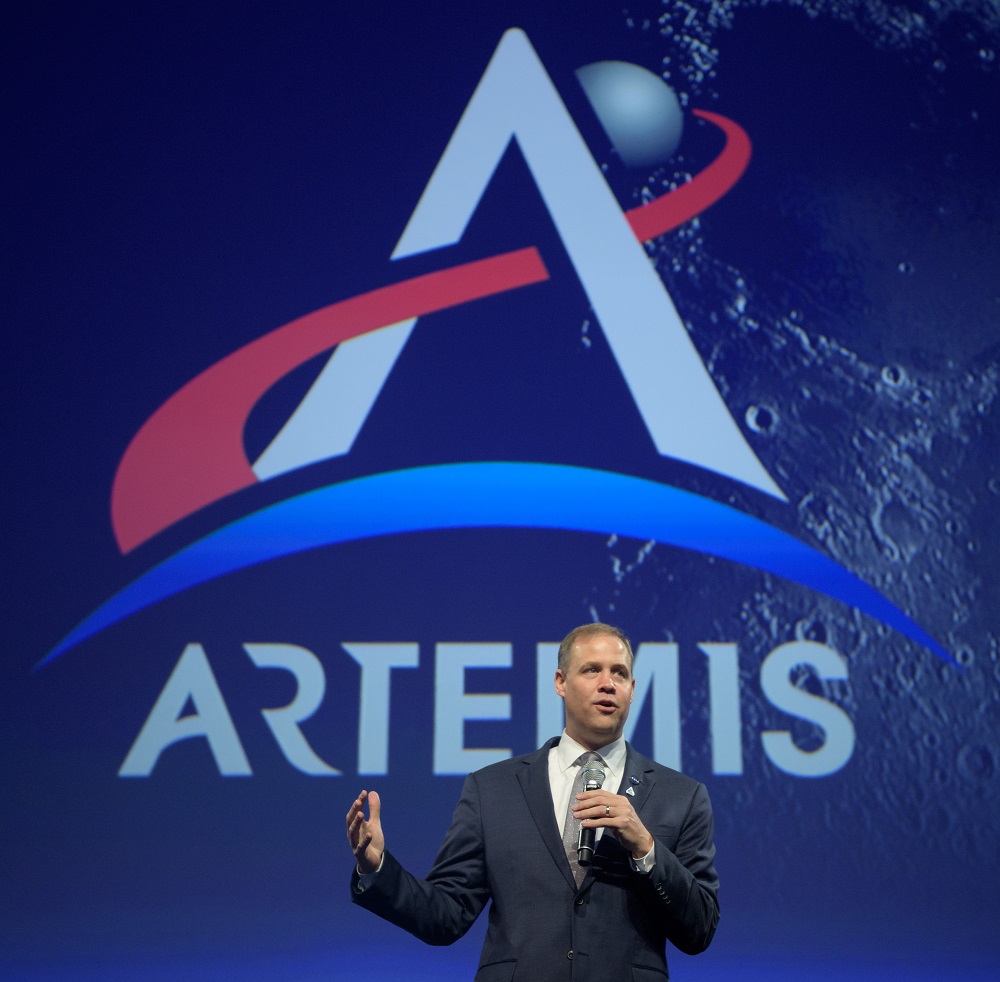Products You May Like
When the bipartisan leadership of the House Science Committee introduced a NASA authorization bill Jan. 24, it surprised many people in the civil space community. The bill appeared to reject the goal of NASA’s Artemis program to return humans to the moon by 2024, requiring instead a return only by 2028. It also spurned NASA’s approach for using public-private partnerships for building a lunar lander in favor of a more conventional government-led approach, and minimized activities at the moon to just those needed for a later human mission to Mars.
The bill got a sharp reaction from NASA. “It’s fairly prescriptive. We would like more flexibilities on what we do on the surface of the moon and flexibilities in how we do our contracting,” NASA Administrator Jim Bridenstine said in an interview a few days after the bill’s release.
The bill’s sponsors say it’s not their intent to block a 2024 return to the moon. “Let me be crystal clear: this bill is not about rejecting the Artemis program or delaying humans on the moon until 2028,” said Rep. Kendra Horn (D-Okla.), chair of the space subcommittee and lead sponsor of the bill, during a Jan. 29 markup of the bill that made only minor changes to it.
Since that markup, debate over the bill has faded as work to refine it continues. “It represents to me a positive bipartisan first step, but it’s in the middle of its own process,” Jim Morhard, NASA deputy administrator, said of the bill at a Space Transportation Association luncheon Feb. 19.
However, left out of many discussions about the bill is this key fact: the bill doesn’t actually need to get through that legislative process. A NASA authorization bill is not required for the agency to operate, and most years Congress does not pass one.
That’s important because it’s unlikely that the bill would become law in anything like its current form. The House bill differs significantly from a NASA authorization bill introduced in the Senate in November, which lacks the language about a 2028 lunar return or how to develop a lunar lander. Assuming the Senate passes its NASA bill — it cleared the Senate Commerce Committee last year but hasn’t been taken up by the full Senate — it would need to be reconciled with the House bill.
Moreover, getting anything through the Senate requires a process known as unanimous consent, a streamlined approach that can be halted if just one senator objects. “Typically, all NASA bills, all space bills, pass by unanimous consent,” said Alicia Brown, a Democratic staff member on the Senate Commerce Committee, during a panel discussion last month at the Commercial Space Transportation Conference. “It’s a pretty high threshold.”
A NASA authorization bill is not the only space bill members of Congress want to pass this year. The Senate reintroduced the Space Frontier Act, a commercial space bill which did pass the Senate by unanimous consent at the end of the last Congress in December 2018, only to die in the House. The American Space Commerce Free Enterprise Act, a similar bill that passed the Republican-controlled House in 2018, has been reintroduced there, but hasn’t been taken up by the House Science Committee.
Both House and Senate staffers say they’re also interested in legislation dealing with space traffic management. The House space subcommittee held a hearing on the topic Feb. 11, but Horn said it was just the beginning of “a series of subcommittee and committee activities” on the issue.
However, there’s little time to consider any of those bills. “Given the election calendar and the session calendar, we’re already running out of time,” said Hunter Presti, a Republican staffer on the House aviation subcommittee, which is considering a commercial space safety bill.
“I am confident that we will be able to work with the committee and figure it out so that it’s a bill that will get through that process,” Morhard said of the House’s NASA authorization bill. But there might not be time to do it this year.

Jeff Foust writes about space policy, commercial space, and related topics for SpaceNews. His Foust Forward column appears in every issue of the magazine.
This column ran in the Feb. 24, 2020 issue.
